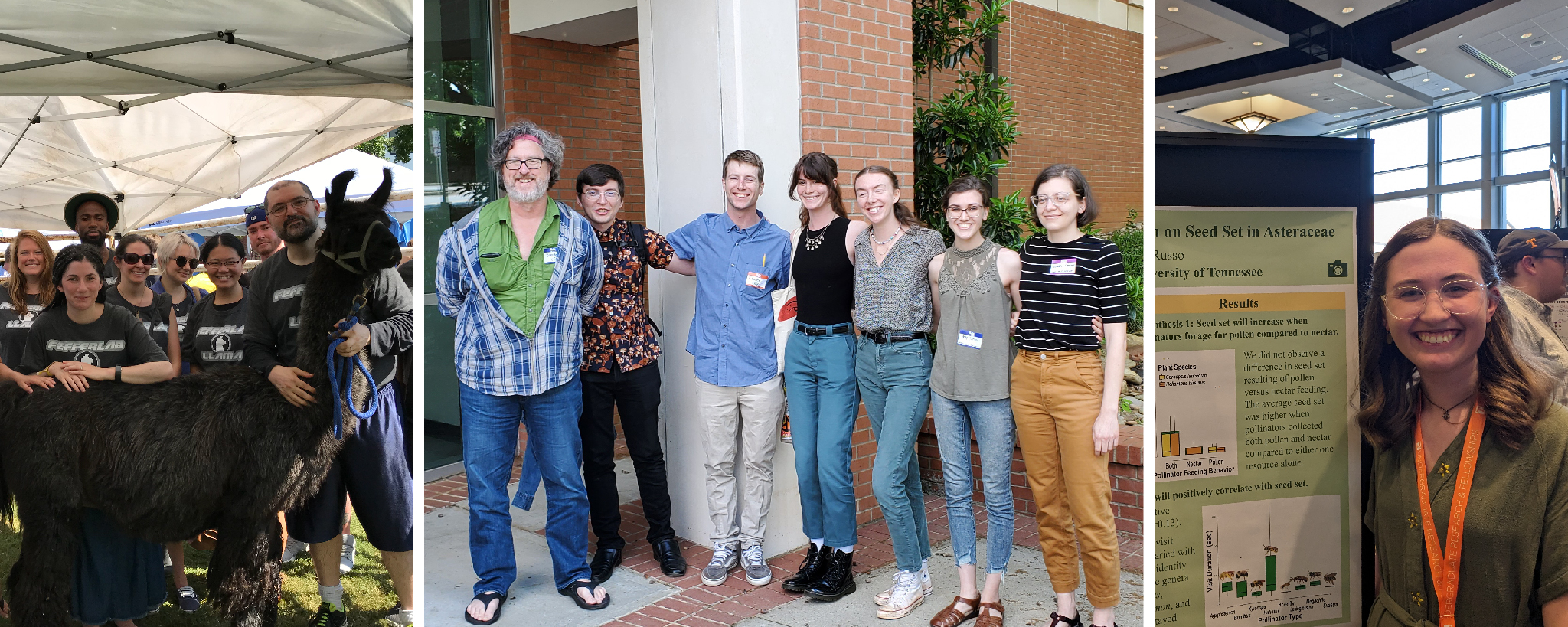We value prior research experience, along with an academic background consistent with a bachelor’s degree in one of the life sciences. Ecology and evolutionary biology are diverse fields, so there is no explicit set of courses required, and particular potential advisers may be willing to advise highly qualified applicants from a variety of educational backgrounds.
Applicants are expected to have an overall undergraduate grade point average (GPA) of at least 3.0 on a 4.0 point scale, and 3.0 or above for all science and mathematics courses. Please note that these EEB requirements are more restrictive than those published on the College-wide Graduate Admissions page. Successful applicants typically have research experience as an undergraduate or have completed a master’s thesis in a field that is relevant to their proposed research. However, please reach out to a potential advisor before deciding not to apply: we evaluate applicants holistically, and it is possible that something you see as a deficiency in your application might be outweighed by factors that make you an excellent addition to our program overall.
The general Graduate Record Examination (GRE) is NOT required for candidate evaluation or admission to the EEB graduate program.
Applicants whose native language is not English must submit results of the Test of English as a Foreign Language (TOEFL), International English Language Testing System (IELTS), or Duolingo English Test. Please see the Graduate Admissions Testing Requirements for minimum required scores.
Applicants need to make direct contact with potential research advisors prior to applying. The list of faculty members and their research interests can be found on the EEB faculty page. In addition, we also provide a list of faculty members who are actively recruiting graduate students for admission in fall 2026 and the exemplary research questions that interest them. Only those applicants for whom at least one potential research adviser (thesis or dissertation) has been identified will be accepted. If you need help with the online application, please contact the Graduate School Office of Admissions Staff.
Program Highlights
- Our graduate students publish dozens of papers annually in journals such as Science, Ecology, Systematic Biology, Proceedings of the Royal Society B, American Naturalist, Biological Invasions, Journal of College Science Teaching, and are awarded external research funds (e.g., NSF GRFP and other fellowships).
- PhD graduate placement, for all graduates from 2000-2018: 43 tenure-track faculty, 22 postdocs, 28 government, with the others in NGOs, private business, or non-tenure track jobs. For those at least five years after graduation, 57% tenure-track faculty, 3% postdoc, 17% government.
- Resources to support student research: internal funds, DNA sequencing facility, core microscopy, computer clusters, greenhouses, and a field station.
- Available training in teaching best practices, including a certificate in college teaching and training consistent with AAAS national recommendations.
- Emphasis on creating a positive and welcoming departmental climate for all
- Grad students receive health insurance, and tuition and campus fees are covered.
- Outreach and service opportunities, including invasive species removal, taxonomic forays with the broader public, participation in Darwin Day Tennessee, and mentoring undergraduates and high school researchers..
- Students commonly develop their research projects in close partnership with NGOs and state and federal agencies to ensure their research has a real-world impact.
- Nearby locations for research: Great Smoky Mountains N.P., a biodiversity hotspot; numerous cave systems; campus greenhouses; and experimental plots.
- Vibrant community: 86 miles of greenways and trails in Knoxville, many festivals and parades, museums, and live music.
- Active departmental graduate student organization (GREBE) to represent and help graduate students.
Application Procedures
All application materials should be submitted through the Graduate School. Please visit the Graduate Admissions Application website for more information. International students should also view the information on the Graduate International Students page.
EEB has additional application requirements, but all departmental forms are available in the Graduate School’s online application system. The additional departmental requirements include:
- Letters of Recommendation from three individuals qualified to assess the applicant’s potential as a graduate student (e.g., academic advisor, undergraduate or graduate research advisor).
- Departmental Application, which includes:
- Mentor Selection
- Scholarships, Fellowships, Honors and/or Awards Received
- Fellowships Applied For
- Professional Goals
- This is a <=3-page statement that explains your professional goals and aspirations and summarizes the key questions in ecology or evolution that you are interested in addressing as a graduate student. Please include an explanation on why you are interested in those questions.
- Independent Research Experience(s)
- This is a <=2 -page statement that describes your most substantial independent research experience(s)
- Publication(s)
The online application has several parts. Once you start your application, you can save your work and log in later to finish. While EEB’s application deadline is December 1, we highly recommend that applicants submit materials substantially earlier. We do not consider an application complete until ALL application materials have been received, including letters of recommendation. Please note there is also a $60 Graduate School application fee, and applications cannot be processed without payment of the fee. If the application fee will cause financial hardship, prospective students can request a fee waiver by filling out our graduate student fee waiver form. Receiving a fee waiver will in no way impact a prospective student’s chances of admission. Note that all applicants who are eventually admitted to the program will receive a reimbursement of $60 if they paid the fee themselves. It is the responsibility of applicants to make sure that their application is complete, including letters of recommendation, by the December 1 deadline.
To find more information on graduate school, you can visit the Ecological Society of America’s “Advice on Applying to Graduate School” article.
